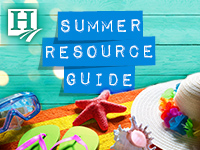How to Avoid “Reading Slide”
In my personal experience and in the experience of the many families I talk with, a playful summer vacation filled with social interactions, hands-on projects, time outdoors, exercise, and lots and lots of books is the perfect antidote to summer brain drain. In fact, through these sorts of meaningful experiences, your child is exposed to new concepts and ideas and also has an opportunity to reinforce previously established academic skills.
So, Keep Reading!
Listen to our Summer Learning Challenge Podcasts!
Many educators agree that reading just six books over the summer will help emergent and reluctant readers avoid losing newly acquired skills. Still, to develop passionate lifelong readers, grownups need to keep things fun. Clearly, arbitrary rules like “You must read for 20 minutes each day” or “no one can go outside until they’ve read 2 chapters” make reading another chore for your child to resist. Reading can be a natural, fun, and inherent element of your child’s life. If you have a reluctant reader, don’t push or nag. Instead, work gently and consistently with your child. Be a team and seek out reading material together that brings your child joy.
Here are some specific things you can do to avoid the “reading slide.”
- Establish library visits as a regular part of your summer routine. Especially one that your children can anticipate with excitement. Make sure they see you also taking out books of your own to enjoy as well!
- Let them choose their own books. In fact, don’t worry about the “quality” of the material your child chooses. For so much of the school year kids are told what to read and they have little choice in the matter. Summer, in particular, is a perfect chance for your children to grow as readers and to discover on their own what sort of writers and storylines they enjoy most.
- Try a Summer Reading Challenge. Sponsored by companies, libraries, and
 nonprofits, these contests involve reading an assigned list or a specific number of books before the summer is through and receiving a small prize or public recognition for the accomplishment. These are great fun and expose kids to new authors and titles they might not have otherwise found.
nonprofits, these contests involve reading an assigned list or a specific number of books before the summer is through and receiving a small prize or public recognition for the accomplishment. These are great fun and expose kids to new authors and titles they might not have otherwise found.
-
- The Barnes and Noble summer reading program awards participants with a free book when they read any 8 books.
-
- Pizza Hut sponsors several fun reading challenges for kids through their Book It program
-
- The Mensa for Kids Excellence in Reading Program is not just for Mensa members. Participants in this year-round program earn a certificate and a t-shirt for reading all of the books in this book challenge.
-
- Create your own neighborhood Reading Challenge! Help your readers establish the number of books they will read over the summer. If they need help coming up with titles, show them the Read Brightly website. It has an amazing book-finder resource.
- Read something every day. If your child is a reluctant reader, avoid making a big deal about reading a novel. Instead, make reading a natural part of their life. For example: Have them read over your grocery list (skip a few of their favorite items and see if they notice!) Give them a menu and have them read off the options to you.
- Read to your child. Kids who struggle with reading, as well as avid bookworms, benefit from reading with you.
- Ask relatives and family friends to send your child postcards of the places they visit over the summer. Ask them to use clear handwriting and include interesting details that your child will be motivated to read.
- Spending time in the kitchen is a great way to practice reading skills. Your child will have fun looking through cookbooks and researching recipes online.
- Visits to zoos, museums, restaurants, and even the movie theater provide ample reading opportunities for your child. Ask your child to read the map and help find particular sites and exhibits. Give your child a menu and watch how pleased she is to select her own meal.
- Listen to audiobooks in the car. This helps develop your child’s vocabulary.
- Play board games. There is no need to buy special “educational” board games. Old family classics like Monopoly and The Game of Life provide plenty of exposure to words. Scrabble and Boggle are loads of fun as well and are probably already on your shelf!







